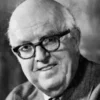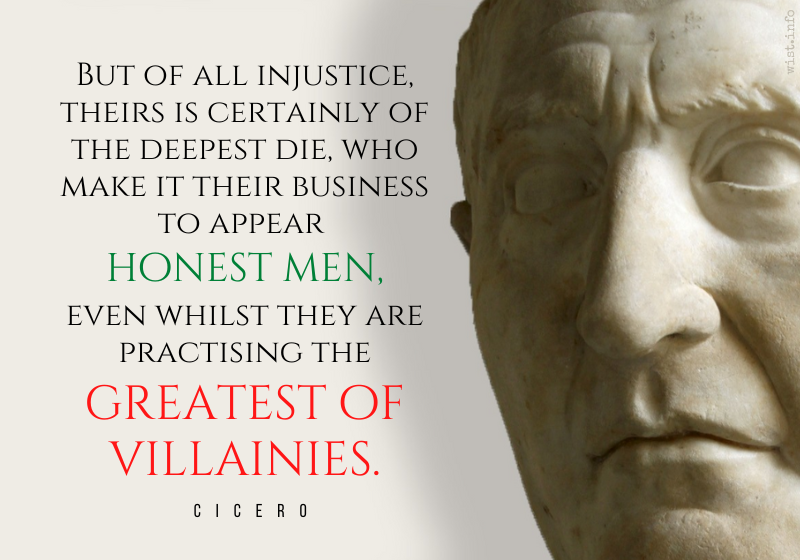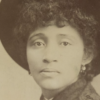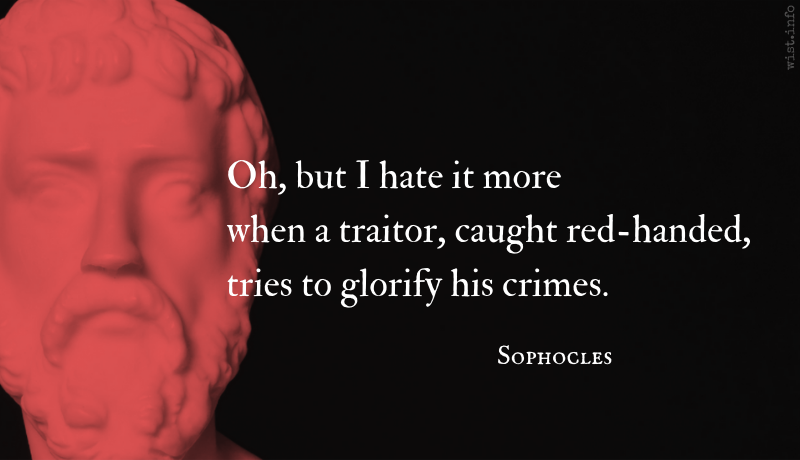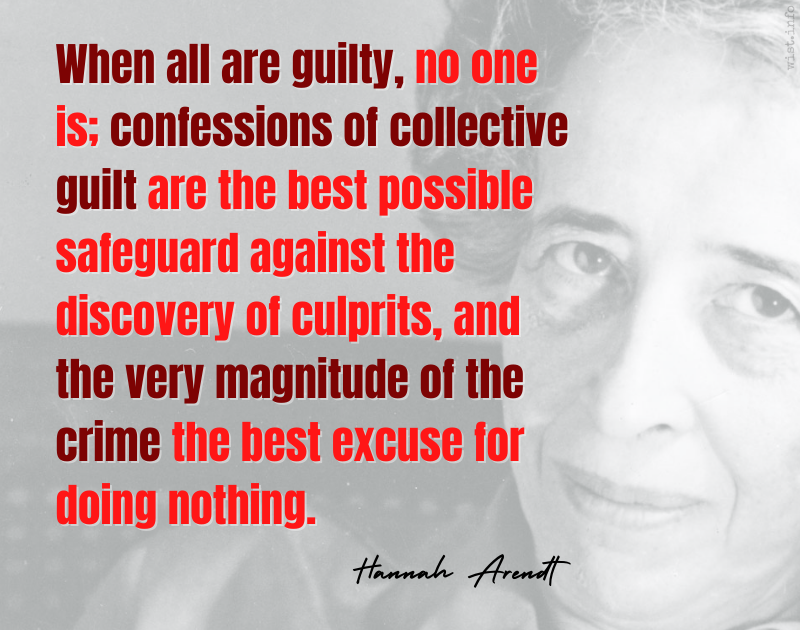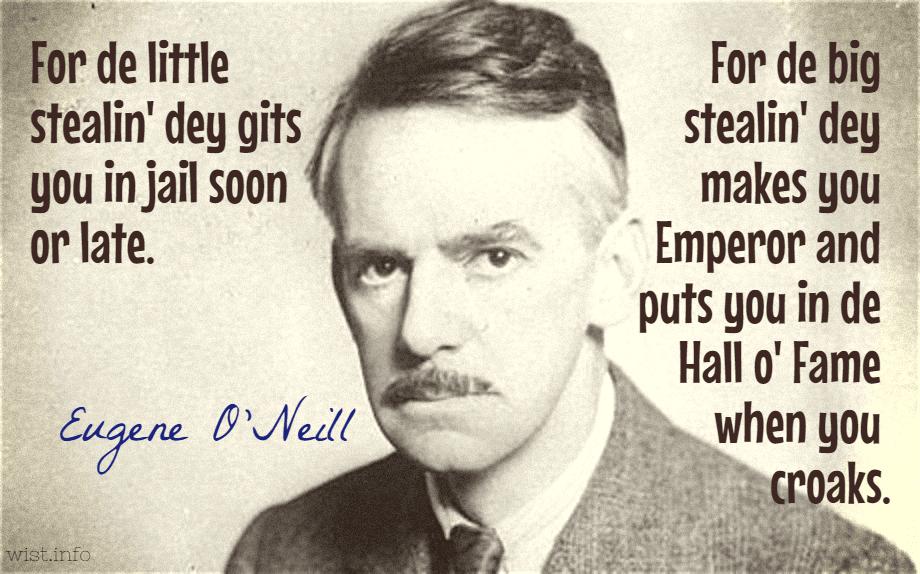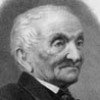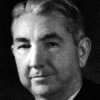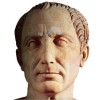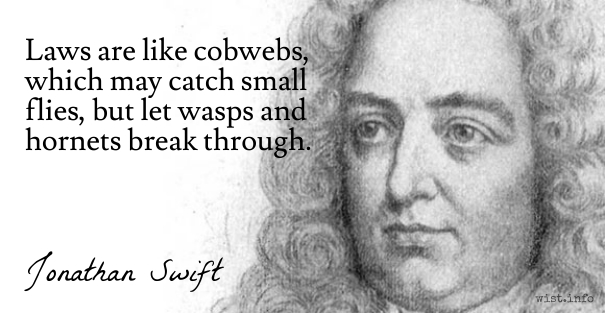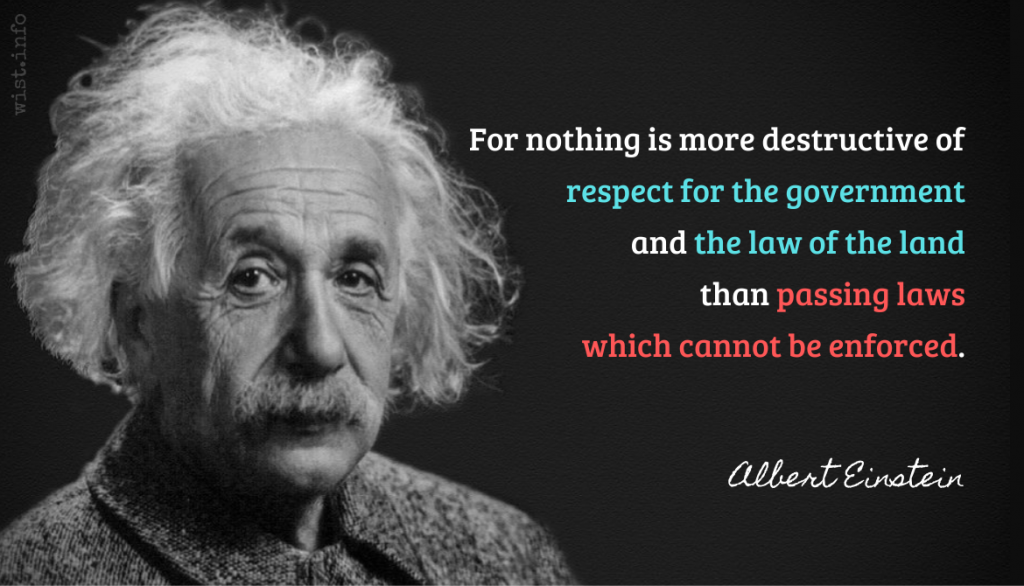If the soul is left in darkness, sins will be committed. The guilty one is not he who commits the sin, but he who causes the darkness.
[Cette âme est pleine d’ombre, le péché s’y commet. Le coupable n’est pas celui qui y fait le péché, mais celui qui y a fait l’ombre.]Victor Hugo (1802-1885) French writer
Les Misérables, Part 1 “Fantine,” Book 1 “An Upright Man,” ch. 4 (1.1.4) [Bishop Myriel] (1862) [tr. Wilbour (1862)]
(Source)
(Source (French)). Alternate translations:This soul is full of darkness, and sin is committed, but the guilty person is not the man who commits the sin, but he who produces the darkness.
[tr. Wraxall (1862)]This soul is full of shadow; sin is therein committed. The guilty one is not the person who has committed the sin, but the person who has created the shadow.
[tr. Hapgood (1887)]The soul in darkness sins, but the real sinner is he who caused the darkness.
[tr. Denny (1976)]If the soul is left in darkness, sins will be committed. The guilty one is not he who commits the sin, but the one who causes the darkness.
[tr. Wilbour/Fahnestock/MacAfee (1987)]In any benighted soul -- that's where sin will be committed. It's not he who commits the sin that's to blame, but he who causes the darkness to prevail.
[tr. Donougher (2013)]
Quotations about:
crime
Note not all quotations have been tagged, so Search may find additional quotes on this topic.
If you had enough money, you could hardly commit crimes at all. You just perpetrated amusing little peccadilloes.
What pleasures habitual wrongdoing provides for men without principle or sense of shame, when they have escaped punishment and found themselves given a free hand!
[O consuetudo peccandi, quantam habes iucunditatem improbis et audacibus, cum poena afuit et licentia consecuta est!]
Marcus Tullius Cicero (106-43 BC) Roman orator, statesman, philosopher
In Verrem [Against Verres; Verrine Orations], Action 2, Book 3, ch. 76 / sec. 176 (2.3.76.176) (70 BC) [tr. Greenwood (1928)]
(Source)
(Source (Latin)). Alternate translations:O you habit of sinning, what delight you afford to the wicked and the audacious, when chastisement is afar off, and when impunity attends you!
[tr. Yonge (1903)]Alas, the habit of evil-doing! what pleasure it affords to the depraved and the shameless, when punishment is in abeyance, and has been replaced by license.
[Source (1906)]
Everything beautiful and noble is the result of reason and calculation. Crime, of which the human animal has learned the taste in his mother’s womb, is natural by origin. Virtue, on the other hand, is artificial, supernatural, since at all times and in all places gods and prophets have been needed to teach it to animalized humanity, man being powerless to discover it by himself. Evil happens without effort, naturally, fatally; Good is always the product of some art.
[Tout ce qui est beau et noble est le résultat de la raison et du calcul. Le crime, dont l’animal humain a puisé le goût dans le ventre de sa mère, est originellement naturel. La vertu, au contraire, est artificielle, surnaturelle, puisqu’il a fallu, dans tous les temps et chez toutes les nations, des dieux et des prophètes pour l’enseigner à l’humanité animalisée, et que l’homme, seul, eût été impuissant à la découvrir. Le mal se fait sans effort, naturellement, par fatalité ; le bien est toujours le produit d’un art.]
Charles Baudelaire (1821-1867) French poet, essayist, art critic
“Le Peintre de la Vie Moderne [The Painter of Modern Life],” sec. 11 (1863) [tr. Mayne (1964)]
(Source)
(Source (French)). Alternate translation:Everything beautiful and noble is the result of reason and calculation. Crime, for which the human creature has acquired a taste in its mother’s womb, is natural in origin. Virtue, on the contrary, is artificial, unnatural since, at all times and among all nations, gods and prophets were necessary to teach virtue to animalistic humanity, which humanity alone was unable to discover. Evil occurs without effort, naturally, through fatality; good is always the product of artifice.
[tr. Kline (2020)]
If men knew how to blush at their own actions, how many crimes, and not only those that are hidden, but those that are public and well known, would never be committed!
[Si l’homme savait rougir de soi, quels crimes, non seulement cachés, mais publics et connus, ne s’épargnerait-il pas!]
Jean de La Bruyère (1645-1696) French essayist, moralist
The Characters [Les Caractères], ch. 11 “Of Mankind [De l’Homme],” § 151 (11.151) (1688) [tr. Van Laun (1885)]
(Source)
(Source (French)). Alternate translations:If men could blush at their own actions, how many sins, publick and private, would they save by it?
[Bullord ed. (1696)]If Men knew how to blush at their own Actions, how many Crimes, publick and private, would they save by it!
[Curll ed. (1713)]If Men could blush for themselves, how many Sins, public and private, would they save by it!
[Browne ed. (1752)]If a man knew how to blush at his own actions, what crimes, not only secret but public and overt, would he not spare himself!
[tr. Stewart (1970)]
If a person transgresses any of these rules, the penalty shall fit the crime.
[Quod quis earum rerum migrassit, noxiae poena par esto.]
Marcus Tullius Cicero (106-43 BC) Roman orator, statesman, philosopher
De Legibus [On the Laws], Book 3, ch. 4 / sec. 11 (3.4/3.11) [Marcus] (c. 51 BC) [tr. Rudd (1998)]
(Source)
A variant on the Latin legal maxim, culpae poenae par esto, usually rendered "Let the punishment fit the crime" (see also Gilbert & Sullivan, The Mikado (1885)).
(Source (Latin)). Alternate translations:If any one shall infringe any of these laws, let him bear the penalty.
[tr. Barham (1842)]If any one shall infringe any of these laws, let him be liable to a penalty.
[tr. Barham/Yonge (1878)]The punishment for violation of any of these laws shall fit the offense.
[tr. Keyes (1928)]Whatever of these someone has violated, let the penalty be equivalent to the crime.
[tr. Zetzel (1999)]Whatever of these matters someone departs from, let there be a penalty equal to the wrongdoing.
[tr. Fott (2013)]Whatever someone has violated, let the punishment match the offense.
[Bartelett's]
When you think of the long and gloomy history of man, you will find that far more, and far more hideous, crimes have been committed in the name of obedience than have ever been committed in the name of rebellion.
C. P. Snow (1905-1980) English novelist, physical chemist, bureaucrat [Charles Percy Snow]
“The Moral Un-Neutrality of Science,” speech, American Association for the Advancement of Science, New York City (27 Dec 1960)
(Source)
Reprinted in Science (27 Jan 1961) and then in Public Affairs (1971).
No, not if I had a hundred tongues and a hundred mouths
and a voice of iron too — I could never capture
all the crimes or run through all the torments,
doom by doom.[Non, mihi si linguae centum sunt oraque centum
Ferrea vox, omnis scelerum comprendere formas,
Omnia poenarum percurrere nomina possim.]Virgil (70-19 BC) Roman poet [b. Publius Vergilius Maro; also Vergil]
The Aeneid [Ænē̆is], Book 6, l. 625ff (6.625-627) [The Sybil] (29-19 BC) [tr. Fagles (2006), l. 724ff]
(Source)
The punishments in Tartarus. Virgil uses a similar metaphor in Georgics 2.43.
(Source (Latin)). Alternate translations:Had I a hundred mouths, as many tongues,
A voice of iron, to these had brazen lungs;
Their crimes and tortures ne're could be displaid.
[tr. Ogilby (1649)]Had I a hundred mouths, a hundred tongues,
And throats of brass, inspired with iron lungs,
I could not half those horrid crimes repeat,
Nor half the punishments those crimes have met.
[tr. Dryden (1697)]Had I a hundred tongues, and a hundred mouths, and a voice of iron, I could not comprehend all the species of their crimes, nor enumerate the names of all their punishments.
[tr. Davidson/Buckley (1854)]No -- had I e'en a hundred tongues
A hundred mouths, and iron lungs,
Those types of guilt I could not show,
Nor tell the forms of penal woe.
[tr. Conington (1866)]Not if I had a hundred tongues, a voice
Of iron, could I tell thee all the forms
Of guilt, or number all their penalties.
[tr. Cranch (1872), l. 780ff]Not had I an hundred tongues, an hundred mouths, and a voice of iron, could I sum up all the shapes of crime or name over all their punishments.
[tr. Mackail (1885)]Nor, had I now an hundred mouths, an hundred tongues at need,
An iron voice, might I tell o'er all guise of evil deed,
Or run adown the names of woe those evil deeds are worth.
[tr. Morris (1900)]Ne'er had a hundred mouths, if such were mine,
Nor hundred tongues their endless sins declared,
Nor iron voice their torments could define,
Or tell what doom to each the avenging gods assign.
[tr. Taylor (1907), st. 83, l. 744ff]&I could not tell,
Not with a hundred mouths, a hundred tongues,
Or iron voice, their divers shapes of sin,
Nor call by name the myriad pangs they bear.
[tr. Williams (1910)]Nay, had I a hundred tongues, a hundred mouths, and voice of iron, I could not sum up all the forms of crime, or rehearse all the tale of torments.
[tr. Fairclough (1916)]If I had a hundred tongues,
A hundred iron throats, I could not tell
The fullness of their crime and punishment.
[tr. Humphries (1951)]No, not if I had a hundred tongues, a hundred mouths
And a voice of iron, could I describe all the shapes of wickedness,
Catalogue all the retributions inflicted here.
[tr. Day-Lewis (1952)]A hundred tongues,
a hundred mouths, an iron voice were not
enough for me to gather all the forms
of crime or tell the names of all the torments.
[tr. Mandelbaum (1971), l. 829ff]If I had
A hundred tongues, a hundred mouths, a voice
Of iron, I could not tell of all the shapes
Their crimes had taken, or their punishments.
[tr. Fitzgerald (1981)]If I had a hundred tongues, a hundred mouths and a voice of iron, I could not encompass all their different crimes or speak the names of all their different punishments.
[tr. West (1990)]Not if I had a hundred tongues, a hundred mouths,
a voice of iron, could I tell all the forms of wickedness
or spell out the names of every torment.
[tr. Kline (2002)]Not if I had a hundred mouths, a hundred tongues,
And a voice of iron, could I recount
All the crimes or tell all their punishments.
[tr. Lombardo (2005)]A hundred tongues and mouths, an iron voice, wouldn't let me cover the varieties of evil, nor all the names for punishments.
[tr. Bartsch (2021)]
But of all injustice, theirs is certainly of the deepest die, who make it their business to appear honest men, even whilst they are practising the greatest of villainies.
[Totius autem iniustitiae nulla capitalior quam eorum, qui tum, cum maxime fallunt, id agunt, ut viri boni esse videantur.]
Marcus Tullius Cicero (106-43 BC) Roman orator, statesman, philosopher
De Officiis [On Duties; On Moral Duty; The Offices], Book 1, ch. 13 (1.13) / sec. 41 (44 BC) [tr. Cockman (1699)]
(Source)
(Source (Latin)). Alternate translations:No act of injustice is more pernicious than theirs, who while they are attempting the greatest deceit, labor to appear good men.
[tr. McCartney (1798)]But in the whole system of villainy, none is more capital than that of the men, who, when they most deceive, so manage as that they may seem to be virtuous men.
[tr. Edmonds (1865)]But of all forms of injustice, none is more heinous than that of the men who, while they practise fraud to the utmost of their ability, do it in such a way that they appear to be good men.
[tr. Peabody (1883)]The most criminal injustice is that of the hypocrite who hides an act of treachery under the cloak of virtue.
[tr. Gardiner (1899)]No iniquity is more deadly than that of those who, when they are most at fault, so behave as to seem men of integrity.
[ed. Harbottle (1906)]But of all forms of injustice, none is more flagrant than that of the hypocrite who, at the very moment when he is most false, makes it his business to appear virtuous.
[tr. Miller (1913)]Taking all forms of injustice into account, none is more deadly than that practiced by people who act as if they are good men when they are being most treacherous.
[tr. Edinger (1974)]
We have laws, jails, courts, armies, guns and armories enough to make saints of us all, if they were the true preventives of crime; but we know they do not prevent crime; that wickedness and depravity exist in spite of them, nay, increase as the struggle between classes grows fiercer, wealth greater and more powerful and poverty more gaunt and desperate.
Lucy Parsons (1851-1942) American labor organizer, anarchist, orator [a.k.a. Lucy Gonzalez]
“The Principles of Anarchism,” lecture (1905)
(Source)
PERICLES: Few love to hear the sins they love to act.
William Shakespeare (1564-1616) English dramatist and poet
Pericles, Act 1, sc. 1, l. 95 (1.1.95) (1607) [with George Wilkins]
(Source)
There are crimes I don’t commit mainly because I don’t want to find out I could.
James Richardson (b. 1950) American poet
Vectors: Aphorisms and Ten-Second Essays #124 (2001)
(Source)
To think yourself incapable of crime is one failure of the imagination. To think yourself capable of all crimes is another.
James Richardson (b. 1950) American poet
Vectors: Aphorisms and Ten-Second Essays, #122 (2001)
(Source)
We may then lay down this rule of friendship — neither ask nor consent to do what is wrong. For the plea “for friendship’s sake” is a discreditable one, and not to be admitted for a moment. This rule holds good for all wrong-doing, but more especially in such as involves disloyalty to the republic.
[Haec igitur lex in amicitia sanciatur, ut neque rogemus res turpes nec faciamus rogati. Turpis enim excusatio est et minime accipienda cum in ceteris peccatis, tum si quis contra rem publicam se amici causa fecisse fateatur.]
Marcus Tullius Cicero (106-43 BC) Roman orator, statesman, philosopher
Laelius De Amicitia [Laelius on Friendship], ch. 12 / sec. 40 (44 BC) [tr. Shuckburgh (1909)]
(Source)
Original Latin. Alternate translations:Let this law therefore be established in friendship, viz., that we should neither ask things that are improper, nor grant them when asked; for it is a disgraceful apology, and by no means to be admitted, as well in the case of other offenses, as when any one avows he has acted against the state for the sake of a friend.
[tr. Edmonds (1871)]As to friendship, then, let this law be enacted, that we neither ask of a friend what is wrong, nor do what is wrong at a friend’s request. The plea that it was for a friend’s sake is a base apology, -- one that should never be admitted with regard to other forms of guilt, and certainly not as to crimes against the State.
[tr. Peabody (1887)]Therefore let this law be established in friendship: neither ask dishonourable things, nor do them, if asked. And dishonourable it certainly is, and not to be allowed, for anyone to plead in defence of sins in general and especially of those against the State, that he committed them for the sake of a friend.
[tr. Falconer (1923)]Therefore, let this law be established for friendship: that we should neither ask for foul things nor fulfill requests for them. For this is a foul excuse and ought not be accepted for any crime, but especially not if someone is shown to have placed themselves against the Republic for the sake of a friend.
[Source]
Oh, but I hate it more
when a traitor, caught red-handed,
tries to glorify his crimes.[μισῶ γε μέντοι χὤταν ἐν κακοῖσί τις
ἁλοὺς ἔπειτα τοῦτο καλλύνειν θέλῃ.]Sophocles (496-406 BC) Greek tragic playwright
Antigone, l. 495ff [Creon] (441 BC) [tr. Fagles (1982), l. 552ff]
(Source)
Original Greek. Alternate translations:Howbeit, to me it is no less abhorrent,
When, caught in criminality, the culprit
Seeks with fine words to beautify his deed.
[tr. Donaldson (1848)]More hateful still the miscreant who seeks
When caught, to make a virtue of a crime.
[tr. Storr (1859)]But not less hateful
Seems it to me, when one that hath been caught
In wickedness would give it a brave show.
[tr. Campbell (1873)]But, truly, I detest it, too, when one who has been caught in treachery then seeks to make the crime a glory.
[tr. Jebb (1891)]I cannot bear to see the guilty stand
Convicted of their crimes, and yet pretend
To gloss them o'er with specious names of virtue.
[tr. Werner (1892)]But verily this, too, is hateful, -- when one who hath been caught in wickedness then seeks to make the crime a glory.
[tr. Jebb (1917)]But now much worse than this
Is brazen boasting of barefaced anarchy.
[tr. Fitts/Fitzgerald (1939), l. 390ff]The criminal who being caught still tries.
To make a fair excuse , is damned indeed.
[tr. Watling (1947), l. 414ff]I hate it too when someone caught in crime
then wants to make it seem a lovely thing.
[tr. Wyckoff (1954)]But this is worst of all: to be convicted
And then to glorify the name as virtue.
[tr. Kitto (1962)]But how I hate it when she's caught in the act, And the criminal still glories in her crime. [tr. Woodruff (2001)]I hate it when someone, caught in ugliness, afterwards wants to make it look pretty. [tr. Tyrell/Bennett (2002)]And there’s nothing I hate more than when someone is caught committing a crime and tries to hide it by embellishing it with sweet words.
[tr. Theodoridis (2004)]How I despise
a person caught committing evil acts
who then desires to glorify the crime.
[tr. Johnston (2005), l. 562ff]I, for my part, hate anyone caught in the act who tries to beautify his crimes thereupon.
[tr. Thomas (2005)]I hate it when someone is caught in the midst of their evil deeds and tries to gloss over them.
[tr. @sentantiq (2020)]
When all are guilty, no one is; confessions of collective guilt are the best possible safeguard against the discovery of culprits, and the very magnitude of the crime the best excuse for doing nothing.
Hannah Arendt (1906-1975) German-American philosopher, political theorist
“On Violence,” Crises of the Republic (1972)
(Source)
No punishment has ever possessed enough power of deterrence to prevent the commission of crimes. On the contrary, whatever the punishment, once a specific crime has appeared for the first time, its reappearance is more likely than its initial emergence could ever have been.
Hannah Arendt (1906-1975) German-American philosopher, political theorist
Eichmann in Jerusalem: A Report on the Banality of Evil, Epilogue (1963)
(Source)
For the propaganda of totalitarian movements which precede and accompany totalitarian regimes is invariably as frank as it is mendacious, and would-be totalitarian rulers usually start their careers by boasting of their past crimes and carefully outlining their future ones. The Nazis were “convinced that evil-doing in our time has a morbid force of attraction,” Bolshevik assurances inside and outside Russia that they do not recognize ordinary moral standards have become a mainstay of Communist propaganda, and experience has proven time and again that the propaganda value of evil deeds and general contempt for moral standards is independent of mere self-interest, supposedly the most powerful psychological factor in politics.
Hannah Arendt (1906-1975) German-American philosopher, political theorist
The Origins of Totalitarianism, Part 3, ch. 10 “A Classless Society,” sec. 1 (1951)
(Source)
Oh dear, I’m feeling political today. It’s just that it’s dawned on me that “zero tolerance” only seems to mean putting extra police in poor, run-down areas, and not in the Stock Exchange.
Satchelmouth was by no means averse to the finger-foxtrot and the skull fandango, but he’d never murdered anyone, at least on purpose. Satchelmouth had been made aware that he had a soul and, though it had a few holes in it and was a little ragged around the edges, he cherished the hope that some day the god Reg would find him a place in a celestial combo. You didn’t get the best gigs if you were a murderer. You probably had to play the viola.
Things seem to tend downward, to justify despondency, to promote rogues, to defeat the just; and by knaves as well as by martyrs the just cause is carried forward. Although knaves win in every political struggle, although society seems to be delivered over from the hands of one set of criminals into the hands of another set of criminals, as fast as the government is changed, and the march of civilization is a train of felonies, yet, general ends are somehow answered.
Ralph Waldo Emerson (1803-1882) American essayist, lecturer, poet
“Montaigne; or, The Skeptic,” Representative Men, Lecture 4 (1850)
(Source)
Be it observed, that the most superstitious times have always been those of the most horrible crimes.
Voltaire (1694-1778) French writer [pseud. of Francois-Marie Arouet]
“Superstition,” sec. 4, Philosophical Dictionary (1764) [tr. Besterman (1971)]
(Source)
I am convinced that every boy, in his heart, would rather steal second base than an automobile.
Tom C. Clark (1899-1977) American lawyer, US Attorney General, US Supreme Court Justice (1949-1967)
(Attributed)
Speaking of recreational programs to reduce juvenile delinquency. Quoted in Reader's Digest, Vol. 60 (1952). Restated as "I still believe that any boy would rather steal second base than an automobile" in Washington World, Vol. 3 (1963).
When evil-doing comes like falling rain, nobody calls out “stop!”
When crimes begin to pile up they become invisible.
When sufferings become unendurable the cries are no longer heard.
The cries, too, fall like rain in summer.
No man was ever more than about nine meals away from crime or suicide.
Eric Sevareid (1912-1992) American journalist [Arnold Eric Sevareid]
“A New Kind of Leadership,” speech, Conference on Vision Care, Washington, DC (26 Apr 1974)
For more discussion of this and other closely parallel quotations, see: There Are Only Nine Meals Between Mankind and Anarchy – Quote Investigator.
They had Gebert down there, slapping him around and squealing and yelling at him. If you’re so sure violence is inferior technique, you should have seen that exhibition; it was wonderful. They say it works sometimes, but even if it does, how could you depend on anything you got that way? Not to mention that after you had done it a few times any decent garbage can would be ashamed to have you found in it.
It is more important that innocence be protected than it is that guilt be punished, for guilt and crimes are so frequent in this world that they cannot all be punished. But if innocence itself is brought to the bar and condemned, perhaps to die, then the citizen will say, “whether I do good or whether I do evil is immaterial, for innocence itself is no protection,” and if such an idea as that were to take hold in the mind of the citizen that would be the end of security whatsoever.
John Adams (1735-1826) American lawyer, Founding Father, statesman, US President (1797-1801)
(Attributed)
Cited in some cases as the closing argument while defending the British Soldiers accused of killing 5 colonists in the "Boston Massacre" (usually given as "Argument in Defense of the Soldiers in the Boston Massacre Trials" (Dec 1770)), but I did not find it in accounts of that defense.
My wife should be as much free from suspicion of a crime as she is from a crime itself.
[Meos tam suspicione quam crimine iudico carere oportere.]
Julius Caesar (100-44 BC) Roman general and statesman [Gaius Julius Caesar]
In Suetonius, Life of Caesar
Popularly, "Caesar’s wife must be above reproach" or "beyond reproach."
Caesar was called to be a witness against Clodius, who was charge with having defiled sacred rites and having an affair with Pompeia, Caesar's wife. Caesar said he had investigated and found out nothing to prove the Pompeia's fidelity. When asked why, then, he had divorced her, he gave this answer.
Alt. trans.: "I judge it necessary for my kin to be as free from suspicion as from the charge of wrongdoing."
Alt. trans.: "I wished my wife to be not so much as suspected." [in Plutarch, “Caesar,” Parallel Lives [tr. Dryden (1693)]].
When hope is taken away from the people, moral degeneration follows swiftly after. Young colored men and women today are giving up hope of justice or security In their own country.
Pearl S. Buck (1892-1973) American writer
Letter to the Editor, The New York Times (1941-11-22)
(Source)
Responding to a Times editorial (1941-11-12) regarding rising crime in Harlem, which she blamed on systemic racism in the US.
There is all the difference in the world between the criminal’s avoiding the public eye and the civil disobedient’s taking the law into his own hands in open defiance. This distinction between an open violation of the law, performed in public, and a clandestine one is so glaringly obvious that it can be neglected only by prejudice or ill will.
Hannah Arendt (1906-1975) German-American philosopher, political theorist
“Civil Disobedience,” Crises of the Republic (1969)
(Source)
For it is in the person’s choice that wickedness and the commission of injustice are found.
[ἐν γὰρ τῇ προαιρέσει ἡ μοχθηρία καὶ τὸ ἀδικεῖν]
Aristotle (384-322 BC) Greek philosopher
Rhetoric [Ῥητορική; Ars Rhetorica], Book 1, ch. 13, sec. 10 (1.13.10) / 1374a.11 (350 BC) [tr. Bartlett (2019)]
(Source)
Often given as "The intention makes the crime." (Source (Greek)). Alternate translations:For the criminality and injustice of the act stands essentially in the deliberate principle on which it is done.
[tr. Buckley (1850)]For vice and wrong-doing depend on the moral purpose.
[tr. Jebb (1873)]It is deliberate purpose that constitutes wickedness and criminal guilt.
[tr. Roberts (1924)]For vice and wrongdoing consist in the moral purpose.
[tr. Freese (1926)]For the immorality and wrongness of an act depend on intentional choice.
[tr. Waterfield (2018)]
How many crimes committed merely because their authors could not endure being wrong?
Albert Camus (1913-1960) Algerian-French novelist, essayist, playwright
The Fall [La Chute] (1956) [tr. O’Brien]
(Source)
Once again prosperous and successful crime goes by the name of virtue; good men obey the bad, might is right and fear oppresses law.
Seneca the Younger (c. 4 BC-AD 65) Roman statesman, philosopher, playwright [Lucius Annaeus Seneca]
Hercules Furens, Part 1, l.255 [Amphitryon] [tr. Miller (1917)]
(Source)
Alt. trans.: "Successful and fortunate crime is called virtue."
Books that cannot bear examination, certainly ought not to be established as divine inspiration by penal laws.
John Adams (1735-1826) American lawyer, Founding Father, statesman, US President (1797-1801)
Letter to Thomas Jefferson (23 Jan 1825)
(Source)
The prestige of government has undoubtedly been lowered considerably by the prohibition law. For nothing is more destructive of respect for the government and the law of the land than passing laws which cannot be enforced. It is an open secret that the dangerous increase of crime in the United States is closely connected with this.
Albert Einstein (1879-1955) German-American physicist
“My First Impression of the U.S.A.” (1921)
(Source)
Later published as "Some Notes on my American Impressions" in The World As I See It (1949)
To punish a man because he has committed a crime, or because he is believed, though unjustly, to have committed a crime, is not persecution. To punish a man, because we infer from the nature of some doctrine which he holds, or from the conduct of other persons who hold the same doctrines with him, that he will commit a crime, is persecution, and is, in every case, foolish and wicked.
Thomas Babington Macaulay (1800-1859) English writer and politician
“Hallam’s Constitutional History,” Edinburgh Review (Sep 1828)
(Source)
Review of Henry Hallam, The Constitutional History of England, from the Accession of Henry VII to George II (1827).
There is no man so good that if he placed all his actions and thoughts under the scrutiny of the laws, he would not deserve hanging ten times in his life.
[Il n’est si homme de bien, qu’il mette à l’examen des loix toutes ses actions et pensées, qui ne soit pendable dix fois en sa vie.]
Michel de Montaigne (1533-1592) French essayist
Essays, Book 3, ch. 9 “Of Vanity [De la vanité]” (c. 1587) (3.9) (1595) [tr. Frame (1943)]
(Source)
First appeared in the 1588 edition.
(Source (French)). Alternate translations:No man is so exquisitely honest or upright in living, but brings all his actions and thoughts within compasse and danger of the lawes; and that tenne times in his life might not lawfully be hanged.
[tr. Florio (1603)]There is no so good Man, that so squares all his Thoughts and Actions to the Laws, that he is not Faulty enough to deserve Hanging ten Times in his Life.
[tr. Cotton (1686)]There is no so good man, who so squares all his thoughts and actions to the laws, that he is not faulty enough to deserve hanging ten times in his life.
[tr. Cotton/Hazlitt (1877)]There does not exist a man of such worth that, were he to lay open to the scrutiny of the laws all his actions and thoughts, he would not deserve hanging ten times in his life.
[tr. Ives (1925)]No man is so moral but that, if he submitted his deeds and thoughts to cross-examination by the laws, he would be found worthy of hanging on ten occasions in his lifetime.
[tr. Screech (1987)]
Men don’t so much blush for their Crimes, as for their Weaknesses and Vanity.
[Les hommes rougissent moins de leurs crimes que de leurs faiblesses et de leur vanité.]
Jean de La Bruyère (1645-1696) French essayist, moralist
The Characters [Les Caractères], ch. 4 “Of the Heart [Du Coeur],” § 74 (4.74) (1688) [Bullord ed. (1696)]
(Source)
(Source (French)). Alternate translations:Men blush not so much for their Crimes, as for their Weaknesses and Vanity.
[Curll ed. (1713)]Men don't so much blush for their Crimes, as for their Weaknesses and Vanity.
[Browne ed. (1752)]Men are less ashamed of their crimes than of their weaknesses and their vanity.
[tr. Van Laun (1885)]Men are less ashamed of their crimes than of their failings and of what touches their vanity.
[tr. Stewart (1970)]








